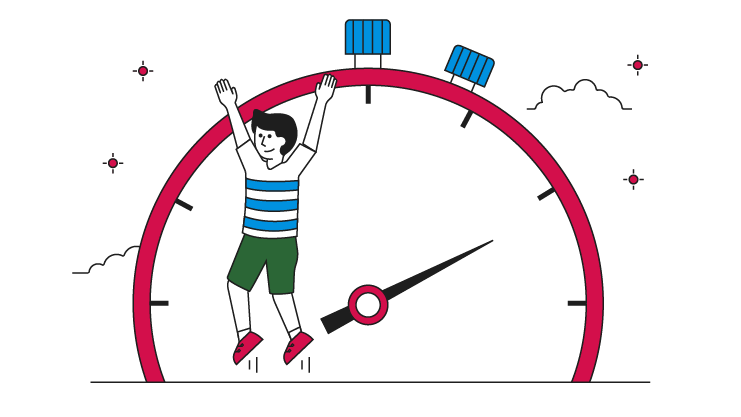The Heart – the Hardest Working Muscle in Your Body

The heart is a strong muscle in your body. It pumps out about 70 milliliters (two ounces) of blood every time it beats. And it does this over three billion times in the average person’s lifetime. The cardiovascular system – comprising your heart and the vessels which carry blood around your body – literally keeps your cells functioning. It supplies vital nutrients such as amino acids and electrolytes. It carries oxygenated blood to cells, and carries away waste carbon dioxide. It helps you fight off disease, and even stabilizes your temperature.1
Cardiovascular Health – a Lifelong Concern
Your heart is the hardest-working muscle in your body. But how much do you really know about this important organ? Like any other muscle in your body, the heart needs to be exercised, given nutrition and rest, and protected from toxins. And a healthy cardiovascular system is essential for people of all ages. For example: Coronary artery disease is the second most common cause of death for 30-49 year olds, yet 25% of 18-24 year olds don’t consider it to be a serious health condition.2 Another example of severe heart disease is heart failure, which affects more than 60 million people around the world. Around 50% of those affected die within five years of diagnosis.
Poor cardiovascular health can cause fatty deposits to build up inside your blood vessels, a process called atherosclerosis. And since atherosclerosis is the primary cause of heart attacks and one of the leading causes of stroke, looking after your cardiovascular health is clearly extremely important. The first signs of atherosclerosis have been shown to begin before the age of 10, when exposed to risk factors.3 Some risk factors are genetic, some are social, and some are behavioural.
The good news is that by following a healthy lifestyle and avoiding behavioural risk factors, you can improve your cardiovascular fitness, stay healthy for longer, and reduce the risk of cardiovascular disease later in life. Even if you’ve been neglecting your cardiovascular health, you can start now cutting out risks and can reap long term benefits.
Get the Blood Pumping
It’s well known that exercise is good for overall cardiovascular health. Physical activity improves the function of your blood vessels, contributes to weight loss, and lowers blood pressure. For adults, 150 minutes of moderate physical activity every week could reduce the risk of ischaemic heart disease by around 30% and the risk of diabetes by 27%.4 So: get off the couch and onto the treadmill.
Interview with nutrition expert Anne Wilkes
The Way to Heart Health Is through the Stomach
What you eat also has a big influence on your cardiovascular health. Avoid foods that are high in saturated fat, trans-fat cholesterol and eat more fruit, vegetables and fish, and you’ll lower your risk of cardiovascular disease. In addition, your risk of coronary heart disease,5 ischaemic stroke and type 2 diabetes increases steadily with your body mass index (BMI). Aim to keep your BMI between 18.5 and 24.9 kg/m2 to minimise your risk.6 So to stay healthy and live longer, pass on the donuts, and pick up an apple instead.
More about Heart Health: Heart Failure
Keep an Eye on Your Lifestyle
As well as exercise and diet, there are a number of lifestyle factors that affect your cardiovascular health. The link between alcohol consumption and cardiovascular health is a little complex, but there is a direct relationship between higher alcohol consumption and the risk of cardiovascular disease.7 The odd glass of wine might be fine but a whole bottle definitely wouldn’t be.
Smoking is estimated to cause nearly 10% of cardiovascular disease around the world.8 But quitting smoking reduces the risk to your health quickly and dramatically. One year after giving up cigarettes, your risk of coronary heart disease will have halved.9 And the age at which you quit has a big impact: in a 50-year follow up study by British doctors, ex-smokers who quit between the age of 35 and 44 had the same survival rates as those who had never smoked.10
Your mental health is one of myriad other factors that influence cardiovascular health. Stress and anxiety can raise your blood pressure, which is the biggest cardiovascular risk factor globally, contributing to 13% of deaths.11 So keep an eye on your mental health as well. Research shows that meditation could help.12
How Burpees Can Help Your Heart

They may be one of the most dreaded exercises in the gym, but burpees are actually brilliant for you to improve your heart health! Like many high intensity exercises, burpees are great for improving your cardiovascular function, aerobic fitness and muscle endurance, all in a short space of time. But: Burpees aren’t easy so please start slowly and take care.
2 Bayer “My Vascular Health Survey” & WHO “Top 10 causes of death”
3 WHO. Global Atlas on cardiovascular disease prevention and control. S. 46.
4 WHO. Global Atlas on cardiovascular disease prevention and control. S. 28.
5 WHO. Global Atlas on cardiovascular disease prevention and control. S. 32.
6 WHO. Global Atlas on cardiovascular disease prevention and control. S. 36.
7 WHO. Global Atlas on cardiovascular disease prevention and control. S. 30.
8 WHO. Global Atlas on cardiovascular disease prevention and control. S. 26.
9 British Heart Foundation. Broschüre „Understanding Smoking to reduce your risk of heart and circulatory diseases”.
10 WHO. Global Atlas on cardiovascular disease prevention and control. S. 26.
11 WHO. Global Atlas on cardiovascular disease prevention and control. S. 18.
12 https://www.health.harvard.edu/heart-health/meditation-offers-significant-heart-benefits




















